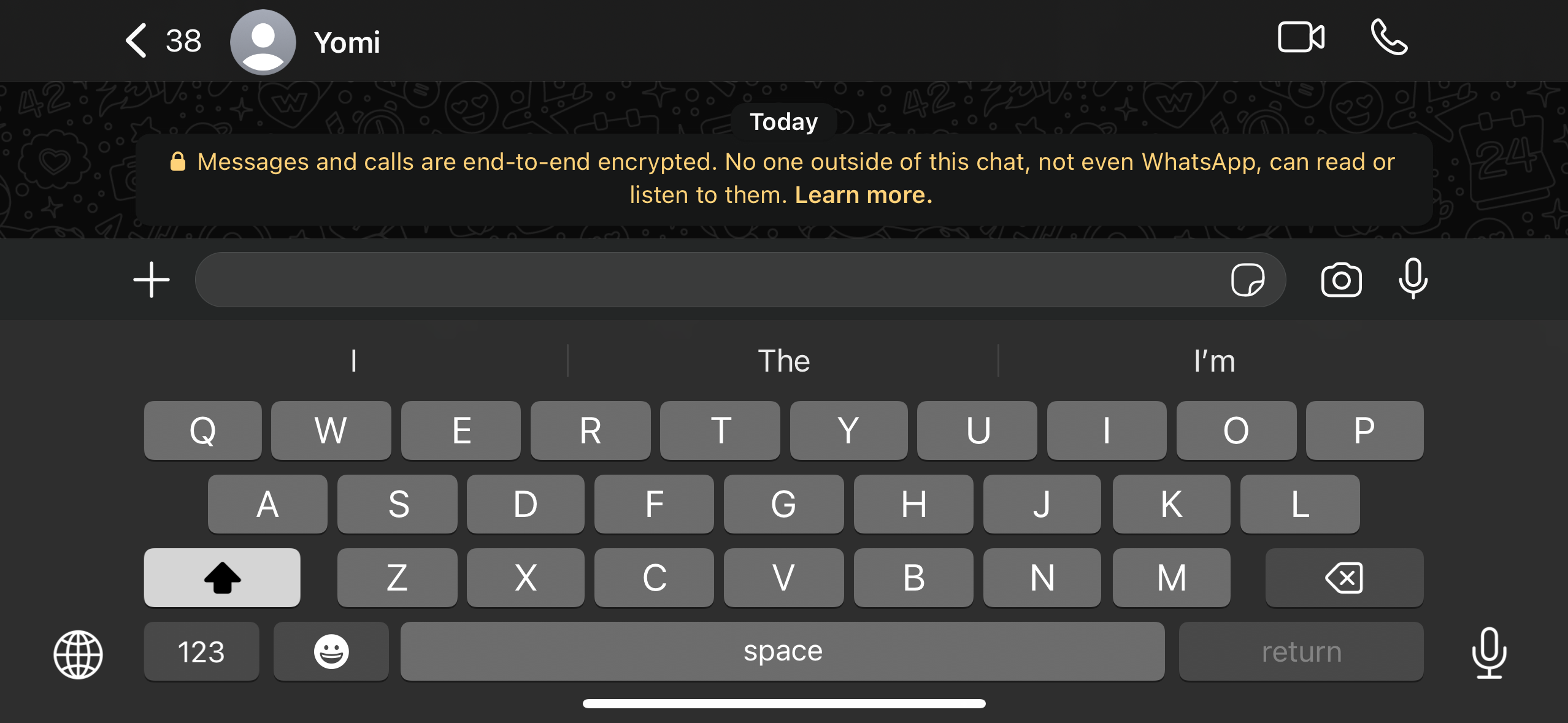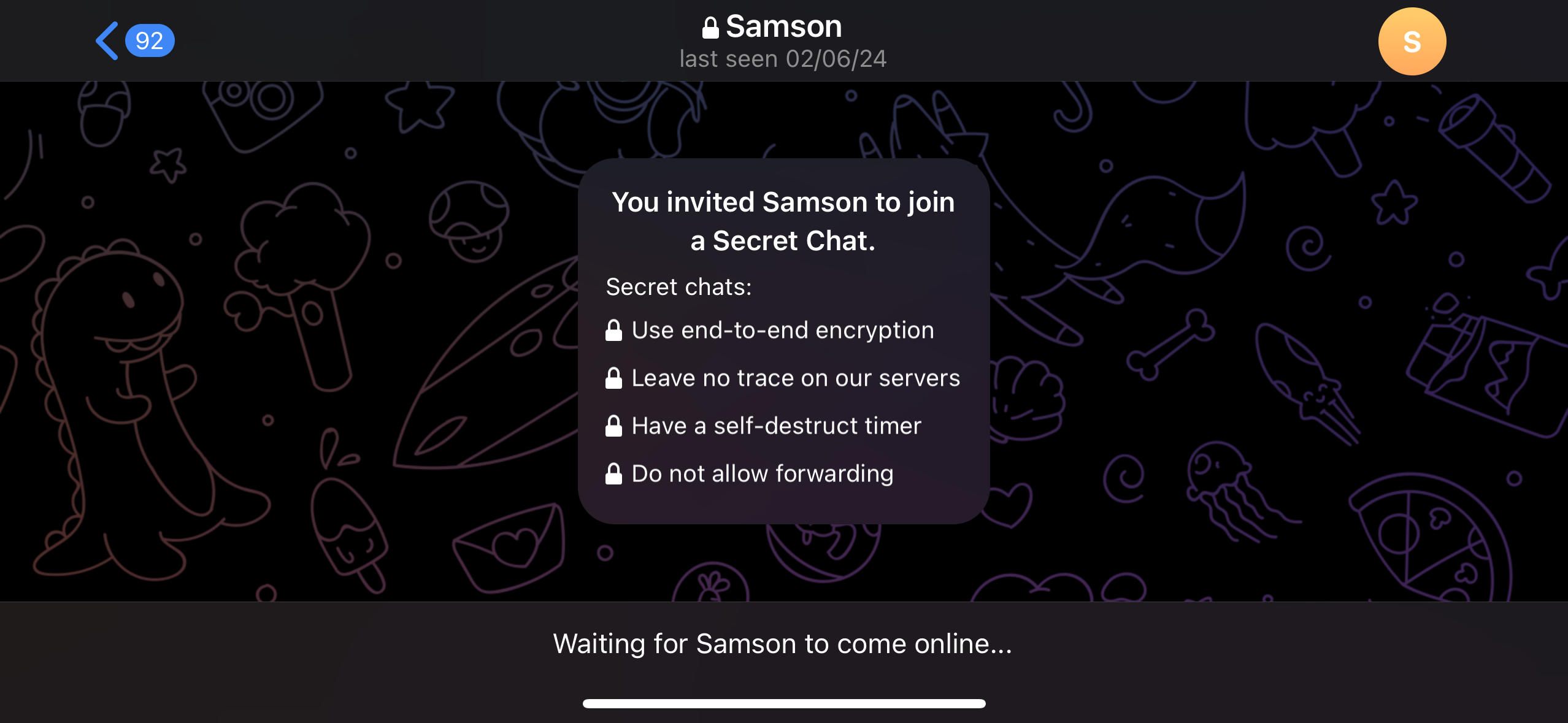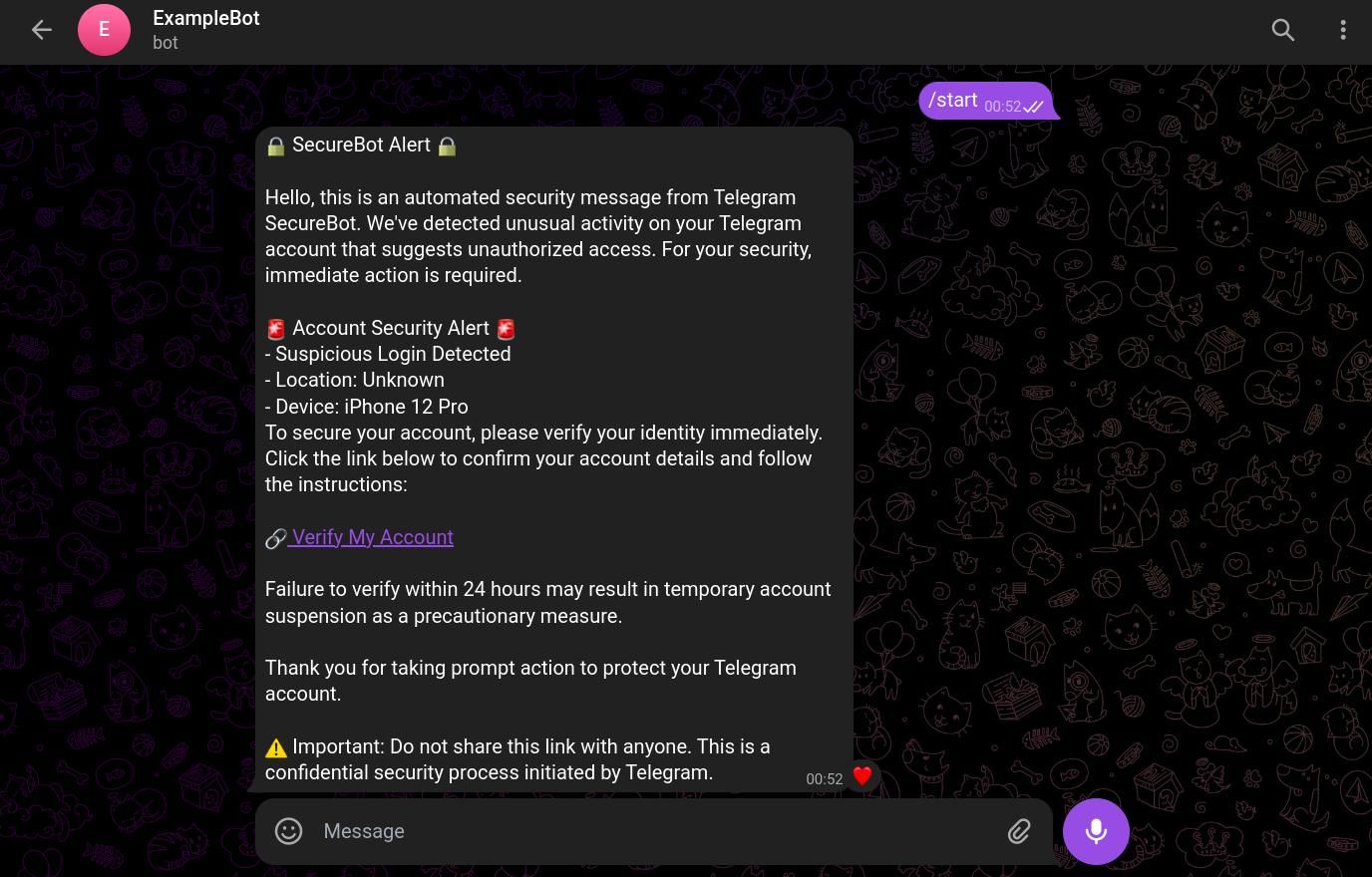Key Takeaways
- Scammers manage multiple victims easily on WhatsApp and Telegram.
- Instant messaging creates urgency and trust for scammers.
- Anonymity, encryption, and file sharing attract scammers to WhatsApp and Telegram.
You may have noticed scammers love to use WhatsApp and Telegram for their scams. That’s because it’s easier to conduct scams and remain undetected while using those apps. But why exactly is this so? What makes them different from other messaging apps?
It’s Easier to Manage Victims on One Platform
Believe it or not, you’re not the only one getting all the attention from your favorite fraudster. These criminals often spam multiple targets, casting their net wide, hoping to trap as many people as possible.
Once they’ve established contact, scammers prefer to continue their deception on instant messaging platforms. This allows them to closely monitor the conversation, hence the prevalence of email scams redirecting to WhatsApp or job application scams conducting ‘interviews’ on Telegram.
As you may already know, WhatsApp and Telegram have excellent contact management features and more accessible search algorithms that trump regular email service providers.
Besides these apps being more accessible, instant messaging can help create a sense of urgency. That “quick, there’s no time” feeling from desperate texts could sometimes be more effective than other slower styles of messaging that may give victims the time to think about what they’re doing.
On the other hand, they could also use texts in a slower, more deliberate way to build trust. For instance, in a pig butchering scam, some scammers will use romance to build trust until they strike. Feigning romantic interest is much easier through instant messaging platforms since a good chunk of digital dating already happens there.
On top of that, many scammers work in groups, and they may have a dedicated person (or team) managing texts on WhatsApp and Telegram. You could describe it as a dedicated ‘scam texting department,’ so to speak. That’s why sometimes the style of texting and continuity may change as you move platforms.
WhatsApp and Telegram Offer Anonymity and Encryption
WhatsApp and Telegram don’t require too much information to create an account. All you need is a verifiable phone number from any country. Unfortunately, SIMs and their paired phone numbers are easy to get from third-party services and unscrupulous network providers. So, it’s easy for foreign scammers to pose like they are from the same country as you.
Furthermore, unlike Facebook, Instagram, or X (formerly Twitter), WhatsApp and Telegram don’t require you to have a profile that people can peruse to track your activity over time. Therefore, remaining anonymous and looking trustworthy is easier since the two apps aren’t designed to build a public online presence. They’re primarily for messaging people you already know.
WhatsApp and Telegram take anonymity even further by allowing users to turn on disappearing messages. This means that scammers can say all kinds of things to you on these apps, and you might return later and see all of them gone from your device, leaving you with no evidence.
Also, if law enforcement gets involved and tries to intercept criminal activity, end-to-end encryption on both platforms (typically used to protect users’ privacy) also protects scammers from the authorities.
However, Telegram’s standard one-on-one chats aren’t end-to-end encrypted and can technically be accessed by Telegram’s servers. Regardless, you can still use end-to-end encryption through the secret chat feature. If someone you don’t know insists you use secret chat, proceed cautiously.
Telegram Has File Sharing and Chatbots
There are so many different types of scams, and a modest percentage of scammers are also hackers. Both WhatsApp and Telegram allow users to share whatever type of file they want—as long as it’s under the maximum file size. These bad actors could use malware to penetrate your device and steal vital information.
Seemingly harmless files, such as PDFs, can contain viruses, so don’t take the power of file sharing for granted.
Telegram takes things further and lets users install and use chatbots inside the app. Chatbots aren’t relevant in most regular one-on-one scams, but they’re pretty useful when scammers create fake online courses or businesses.
In such cases, they might have a large group chat full of interested people, and there will be bots that can verify crypto payments and automate important tasks in the group chat.
These bots aren’t inherently bad since some legitimate service providers use them, but it’s a good explanation for why fraudsters will specifically choose Telegram for their schemes.
Both Apps Offer Free International Messaging (and More Protection)
You may have heard of scammers reaching out via SMS and asking you to continue the conversation on WhatsApp and Telegram. They do that for the same reason you also don’t like sending SMS texts: it’s slower and more expensive.
Using apps like WhatsApp and Telegram, these bad actors can keep in touch with you through an internet connection and a phone number. As we said earlier, these messages are encrypted and way harder to trace than an SMS text message.
SMS messages are typically sent in plain text over the cellular network, meaning they are not encrypted. As a result, the network provider has the technical capability to access and read the content of an SMS message as it passes through their infrastructure. Using it consistently is expensive and risky for them.
Many Scammers Are From Countries That Prefer WhatsApp
While popular in the US, WhatsApp and Telegram aren’t the most common texting means. Most Americans prefer to use MMS (upgraded SMS), Facebook, and iMessage to communicate with family and friends. That’s why the whole blue vs. green bubbles debate is a big deal here.
However, the rest of the world generally prefers WhatsApp for most online communication. There are over two billion monthly WhatsApp users, and 500 million of them are from India alone. With the prevalence of WhatsApp in countries where many reports of scams have come from, it’s not surprising that these perpetrators are eager to use the platform they are most familiar with.
Remember, WhatsApp and Telegram are not bad by themselves. Many features that make them so attractive to scammers were designed to make it easier for you to use the apps and protect your privacy. So, if you see shady online conversations trending toward any of these two apps, odds are it’s a scam, and you should disengage as soon as possible.




إرسال تعليق